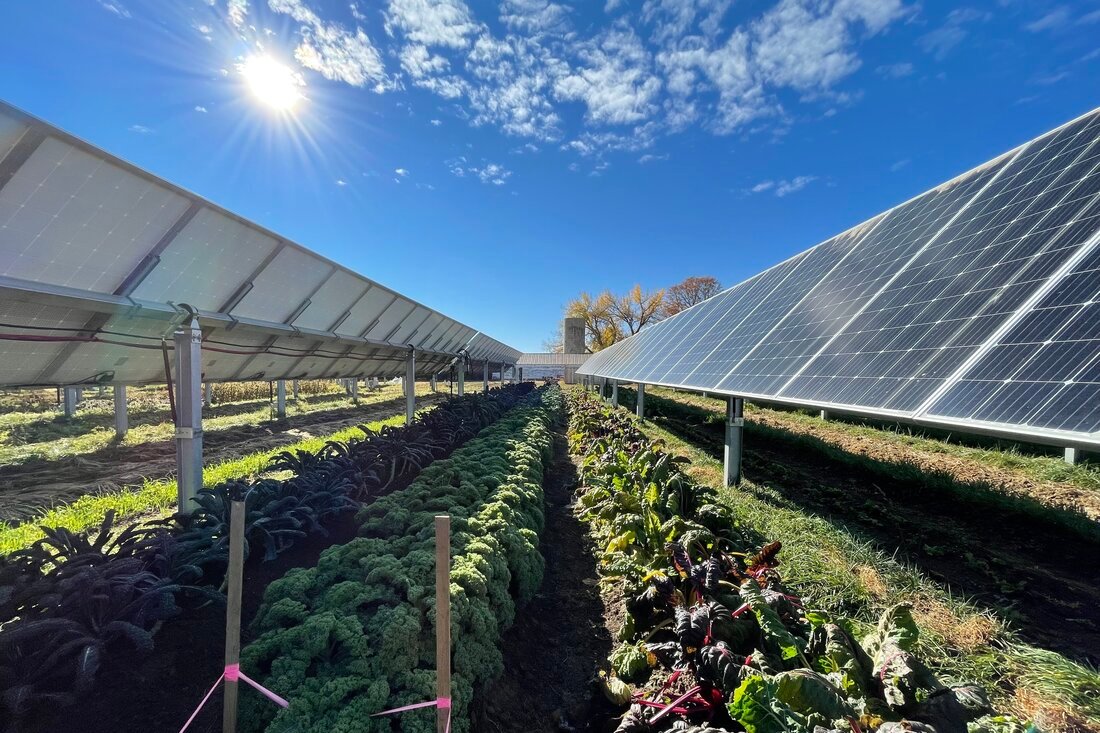Crops Grown Under Solar Panels
Utilizing solar panels for agriculture, known as agrivoltaics, is an innovative approach that maximizes land use by allowing crops to grow beneath solar arrays. Shade-tolerant crops exhibit exceptional growth in these environments, benefiting from the balance of light and protection that solar panels offer. Below are some crops that thrive under solar panels, along with their benefits and economic value.

1. Shade-Tolerant Crops
Many shade-tolerant crops do very well in the environment created by solar panels. Some notable examples include:
- Kale
- Broccoli
- Spinach
- Tomatoes
- Beets
- Lettuce
- Peppers
- Radishes
In Europe, trials have also indicated that wheat, barley, lentils, alfalfa, grapevines, and aromatic herbs thrive under solar panels.
2. Detailed Crop Benefits
- Radish Sprouts: They grow well under solar panels with a light transmission rate of 40%, requiring no additional shading. The economic output ratio is significant, at 9.2.
- Chinese Toon (Xiangchun): Also thriving at a 40% light transmission rate, it features a good market potential with an output ratio of 3.9.
- Water Spinach (Kongxincai): This crop also does well under similar conditions, with an output ratio of 3.2.
- Alfalfa: A shade-tolerant plant that benefits from shading, experiencing improved growth and forage value under solar panels.
- Taro (Colocasia esculenta): Grows well under solar panels in Northern Jiangsu, showing high emergence rates and promising economic returns of 1,878 yuan per 667 square meters.
- Sweet Potato (Ipomoea batatas): Shows excellent growth under solar panels in Northern Shaanxi, fostering land utilization and local employment opportunities.
- Wheat (Triticum aestivum): Exhibits good yield and quality under panels, contributing to food security and efficiency in reclaimed lands.
- Shade-Tolerant Soybean Varieties: Several varieties thrive under solar panels, resulting in increased biomass and economic value.

3. Additional Crops
Other crops that can benefit from being grown under solar panels include:
- Mung beans, red beans, and black beans: These require some shading to maintain quality.
- Buckwheat: May face challenges in high temperatures and requires temperature regulation.
- Strawberries and shade-tolerant medicinal herbs: They also show promising growth potential and economic returns when cultivated under solar panels.
Conclusion
Agrivoltaics presents a unique opportunity for optimizing land use by growing shade-tolerant crops under solar panels. Not only do these crops thrive in the conducive environment, but they also offer substantial economic returns, making this dual-use approach a viable solution for sustainable agriculture and energy production.
Solar Power Generation Stations: Types, Benefits, and Case Studies